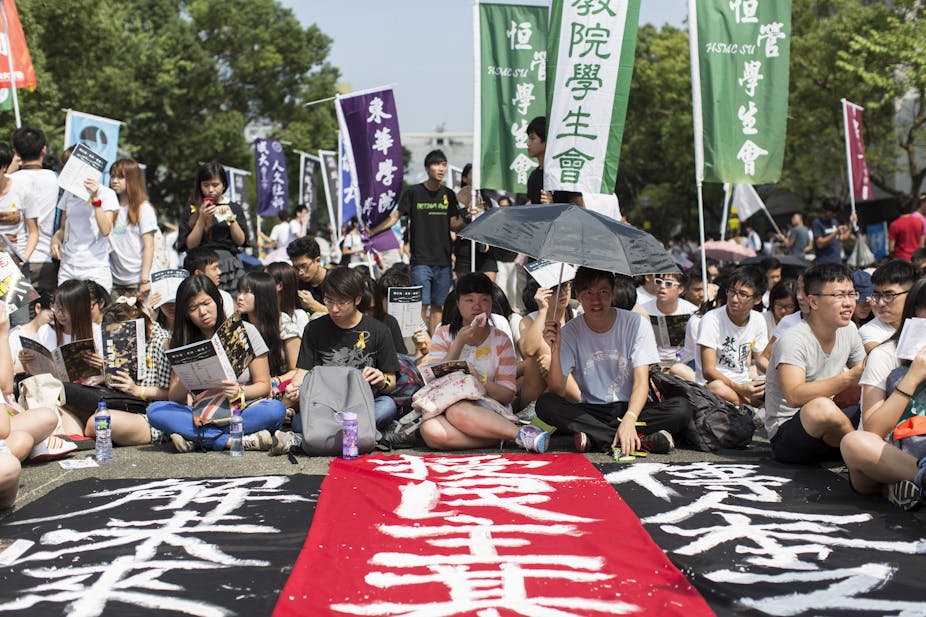The referendum on Scottish independence was hailed in many parts of the world as a shining example of democracy in action. Not so in China.
There, in a concerted campaign to shape public opinion, the state-controlled media devoted an extraordinary number of column inches to criticising a process that came close to splitting up the United Kingdom.
The tone was mixed: some Chinese political analysts suggested the prevailing feeling within Chinese officialdom was sheer bewilderment, and the elite was clearly astonished that a former imperial power should so blithely risk allowing itself to be torn asunder.
There was also gloating in some Communist party circles at the spectacle of the UK dicing with division and very nearly losing. The whole referendum episode was seen by some as vindication of China’s hardline policy towards its own restive provinces: Tibet, Taiwan, Xinjiang and Hong Kong.
And yet, underlying the media furore was a palpable sense of relief that the referendum has apparently not sparked a secessionist contagion across Europe – one that might in turn have inspired China’s own regional separatists to ramp up their already growing efforts.
A British game
As support for independence seemed to surge in the last weeks of the Scottish campaign, Chinese media coverage betrayed the government’s mounting anxiety. In a widely quoted Chinese-language editorial, the Global Times, an e-tabloid renowned for its nationalist bent, said that if Scotland had become independent, David Cameron would have gone down in history as a “criminal”.
This is the same newspaper that earlier in the year called the UK a power in terminal decline, and derided it as only notable for its museums and tourism.
It’s easy to read this preoccupation with the Scottish referendum and the chaos it threatened to cause as mere schadenfreude, and there is a clear tone of amusement in it. But it also reveals what’s really at the forefront of the Chinese leadership’s collective mind: Hong Kong.
In that same editorial, the Global Times warned of the referendum’s potential impact on developments in the Special Administrative Region: “With its complex history and ethnic diversity, China cannot afford to play this British game.”
And it shows no signs of doing so. Despite promises to the contrary, China has made it clear that it will not allow Hong Kong to experiment with universal suffrage in 2016.
Hands tied
In the first few years after Britain handed back the former colony to Beijing, optimism was rife that genuine democracy would be introduced incrementally as part of Deng Xiaoping’s “One Country, Two Systems” approach.
Under popular pressure to further open up Hong Kong’s quasi-democracy, China has announced its intention to allow the region’s residents to elect their chief executive. However each candidate must be approved by Beijing, effectively ensuring that Hong Kong’s democrats will not be able to run for office.
In the face of bitter opposition to this policy from pro-democracy activists, Zhang Xiaoming, the director of China’s Liaison Office in Hong Kong, was quoted as telling them: “The fact that you are alive shows the country’s civility and inclusiveness.”
These developments have led Chris Patten, the colony’s last governor, to appeal to a British “sense of honour”, seemingly calling on Downing Street to publicly condemn the spirit of the Chinese government’s proposals.
After all, the Sino-British Joint Declaration on the Question of Hong Kong, the handover agreement signed in 1984, was meant to ensure Hong Kong’s way of life would remain essentially unchanged for 50 years after the transfer of power.
Despite these ostensible obligations, David Cameron has remained understandably silent over the whole affair – But in truth, his hands are tied.
Leave well alone
In Beijing’s eyes, Britain no longer carries the same international weight as it did when Hong Kong was handed back to China in 1997 – although President Xi Jinping would never go as far as to publicly hurl down “small island” insults in the style of Vladimir Putin.
Notwithstanding some stormy exchanges with China earlier in his tenure, particularly following a meeting with the Dalai Lama, Cameron has focused on strengthening economic ties with Beijing, offering Chinese companies a foothold in Britain’s nuclear and telecommunications industries.
Combined with the fallout from the Scottish referendum drama, this means that any combative or assertive words from Cameron on Hong Kong are highly unlikely. The simple fact is that after his own brush with defeat north of the border, Cameron will struggle to be taken seriously in China if he dares pronounce on any matters of regional self-determination.
As the Global Times editorial said: “The dramatic change in Scottish public opinion in the short span of two years showed the impact a splittist governing party can have, and how effective it can be in pushing the independence agenda and mobilising community support for it.”
In other words, China has no intention of making the same mistake in Hong Kong as Cameron made in Scotland.
And as demonstrated by the formal Chinese complaint received after Nick Clegg dared to meet with pro-democracy activists in July, the authorities will take a dim view indeed of any British meddling in Hong Kong’s future.

